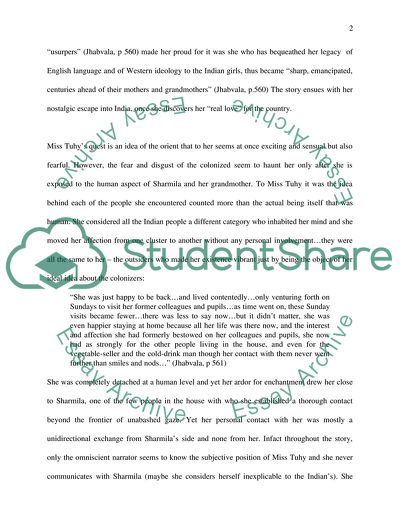Cite this document
(“Miss Sahib by Ruth Prawer Jhabvala Essay Example | Topics and Well Written Essays - 1750 words”, n.d.)
Retrieved from https://studentshare.org/literature/1510616-miss-sahib-by-ruth-prawer-jhabvala
Retrieved from https://studentshare.org/literature/1510616-miss-sahib-by-ruth-prawer-jhabvala
(Miss Sahib by Ruth Prawer Jhabvala Essay Example | Topics and Well Written Essays - 1750 Words)
https://studentshare.org/literature/1510616-miss-sahib-by-ruth-prawer-jhabvala.
https://studentshare.org/literature/1510616-miss-sahib-by-ruth-prawer-jhabvala.
“Miss Sahib by Ruth Prawer Jhabvala Essay Example | Topics and Well Written Essays - 1750 Words”, n.d. https://studentshare.org/literature/1510616-miss-sahib-by-ruth-prawer-jhabvala.


